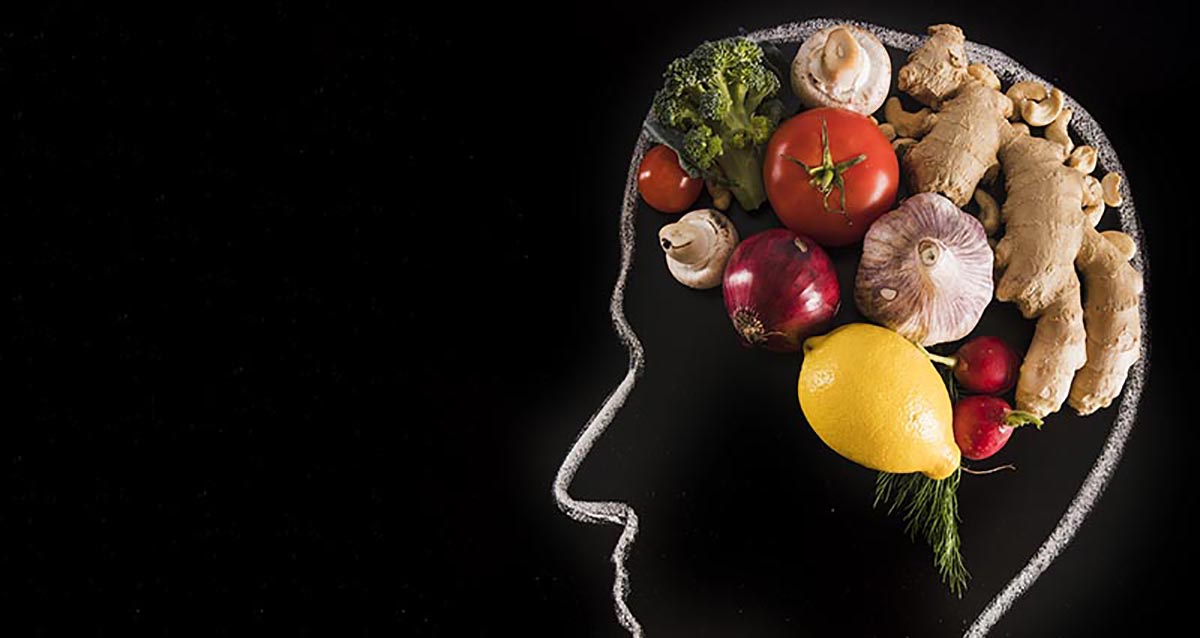Your brain is mission control for your entire body. And just like the actual Mission Control center at NASA, your brain never takes time off. Even while you’re sleeping, it’s regulating your heartbeat, breathing, digestion, and dreams. While you’re awake, it’s processing all the sensory information you take in, helping you perform daily chores and tasks, and processing complex thoughts to keep you motivated and alive.
With all of this activity, your brain requires a lot of fuel, so the foods you choose to consume can make all the difference. To keep your brain in tip-top shape, eating high-quality foods that are rich in vitamins, minerals, and antioxidants is a must. These elements nourish the brain and help protect it from the waste produced by free radicals in the body. At Grey Matters of Carmel, we take brain health seriously, which is why we’re explaining the connection between food and your brain.
How Food Affects Your Mood
As a neurofeedback clinic, Grey Matters has plenty of clients who will tell you that their mood has drastically improved since coming to the clinic. However, we can’t take all the credit. The foods you eat can significantly impact your mood and the level of serotonin in the brain – the neurotransmitter responsible for regulating sleep, appetite, emotions, and pain level.
But where does serotonin come from?
We’re glad you asked! Much of the serotonin in your body (95%) is produced in the gastrointestinal tract. With hundreds of millions of nerve cells and neurons living in your gut, it should be no surprise that your stomach is directly responsible for guiding your emotions. The healthier and more nutritious your food choices, the happier your gut. The happier your gut, the happier your brain.
To further drive home the point that there’s a connection between food and your brain, Eva Selhub, MD, from the Harvard Health Blog writes, “Studies have compared ‘traditional’ diets, like the Mediterranean diet and the traditional Japanese diet, to a typical ‘Western’ diet and have shown that the risk of depression is 25% to 35% lower in those who eat a traditional diet.”
Traditional diets tend to be high in vegetables, fruits, unprocessed grains, and fish, incorporating modest amounts of lean meats and dairy. Furthermore, these traditional diets are entirely void of processed and refined foods and sugars – staples of the Western diet.
What Processed Foods Do to the Brain
When you consider most of the foods on our store shelves, you have to wonder how nutritious they are and if they’re doing your body and brain any good. Unfortunately, foods and beverages high in fructose corn syrup are not hard to come by but should be avoided.
When you consume sugar, and it’s absorbed into the bloodstream via your gut, your body produces a surge of insulin. Insulin is a hormone that tells your cells to either use the sugar or store it. Most sugar gets stored as fat, so heavy consumption of processed foods and sugars can lead to obesity and other health issues.
Furthermore, excess sugar, fried foods, meats, and dairy products in your diet interact with proteins in your bloodstream, producing harmful compounds called AGEs (advanced glycation end products). AGEs contribute to blood vessel inflammation and can even cause strokes and other degenerative brain diseases.
Eating a Balanced Diet for Brain Health
To find a healthy balance between food and your brain, aim to limit your processed food and sugar intake. Instead, focus on fresh fruits and vegetables or even making the switch to a plant-based diet. Eating healthier foods will prevent inflammation and cognitive decline while maximizing your brain function – which is what we’re all about here at Grey Matters!
If you’re not sure where to start, you might consider incorporating more Mediterranean-style dishes into your weekly routine. These meals are high in protein, vitamins, and essential minerals, avoiding the processed sugars and grains. You can check out dozens of these dishes here.
Complement Your Diet with Neurofeedback
You will only ever have one brain, so taking care of it is crucial! Whether through neurofeedback or diet, prioritizing your brain health can lead to a longer, happier life! At Grey Matters of Carmel, we help people of all ages mitigate their depression, anxiety, PTSD, and ADD/ADHD symptoms. If you’re ready to take control and get your life back, give us a call at (317) 215-7208.


